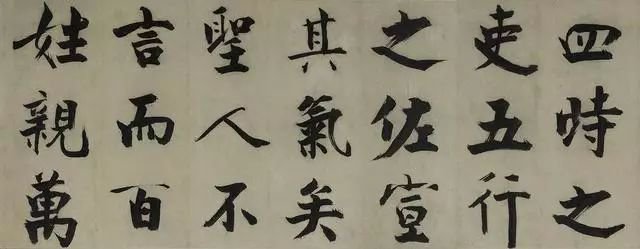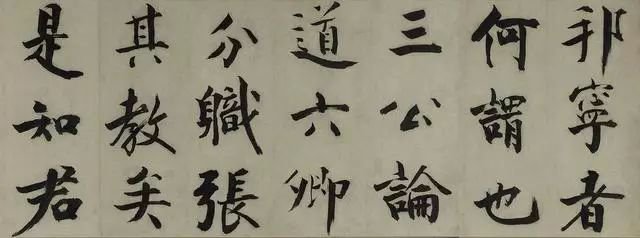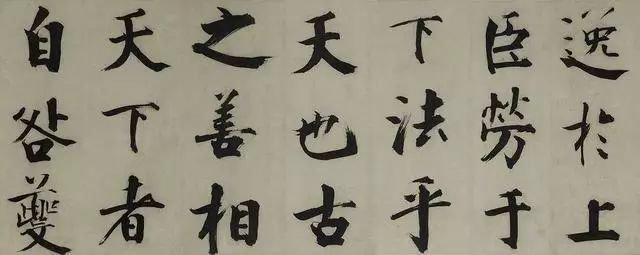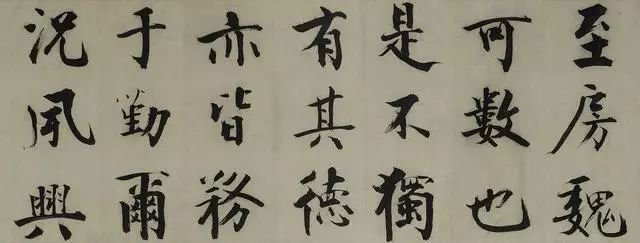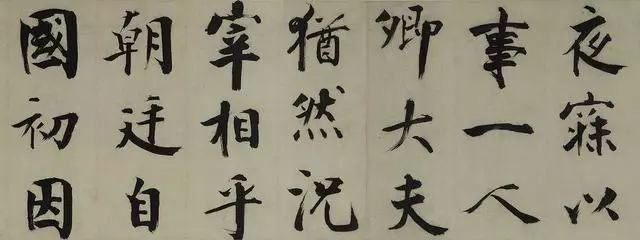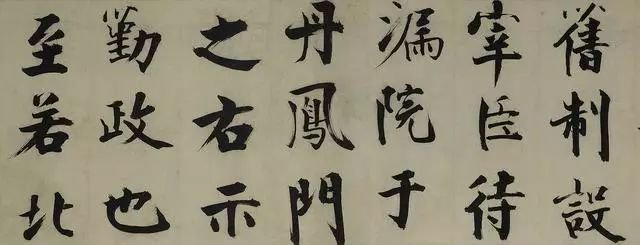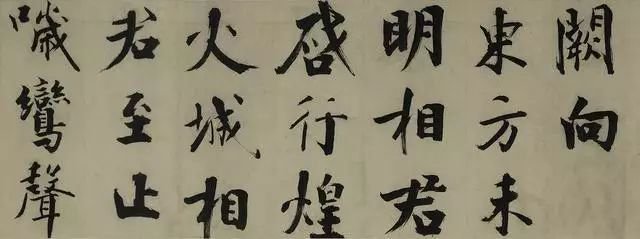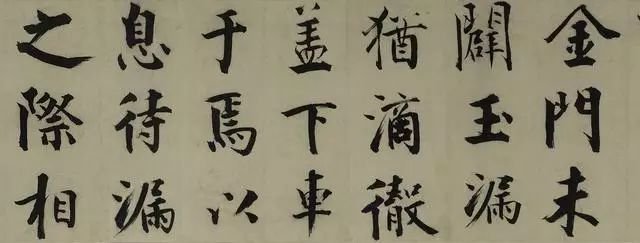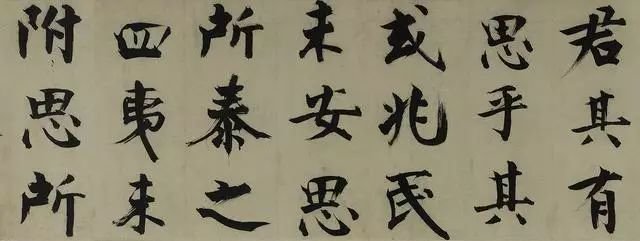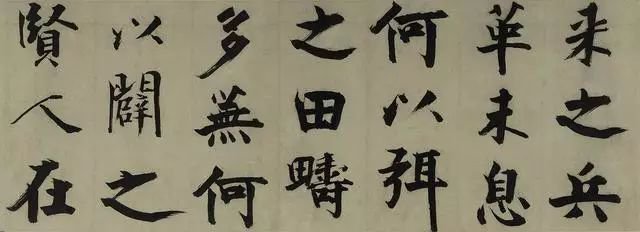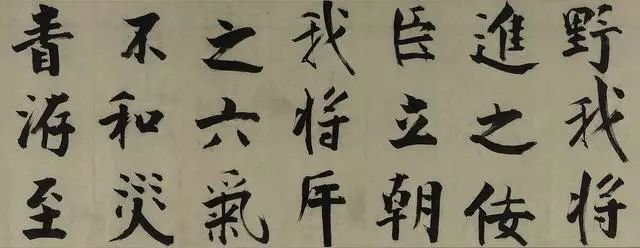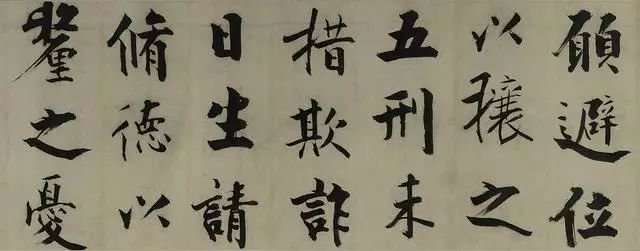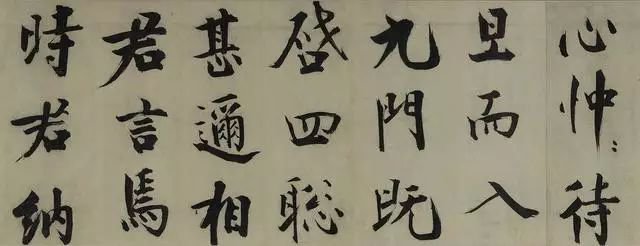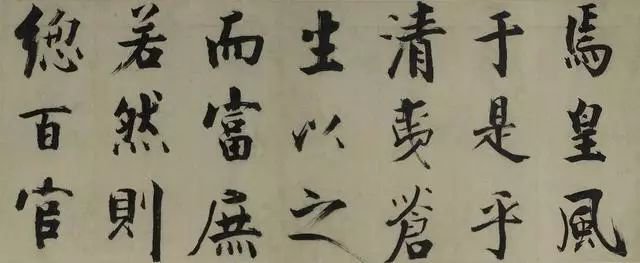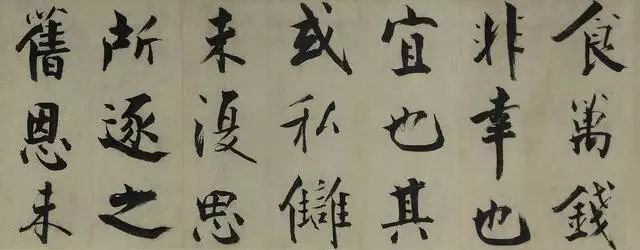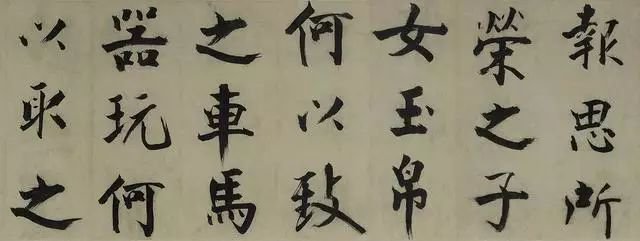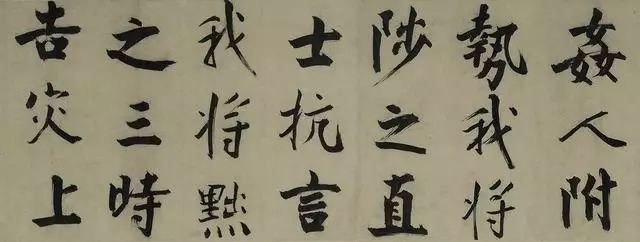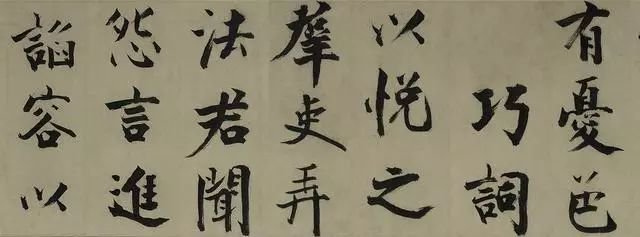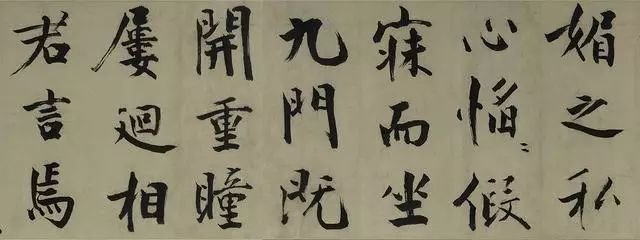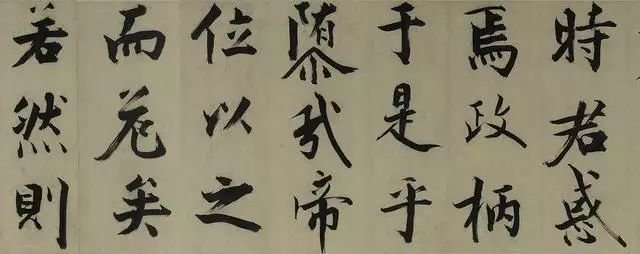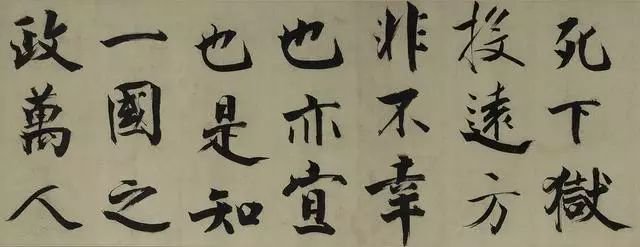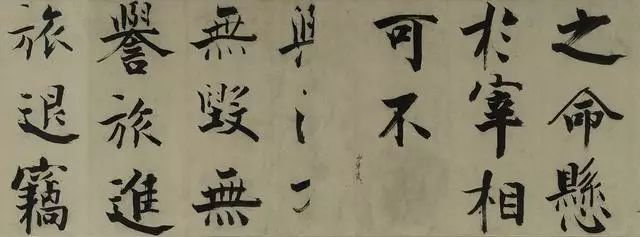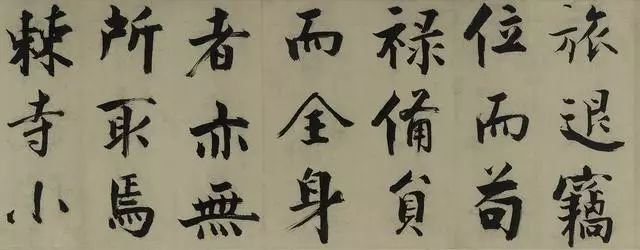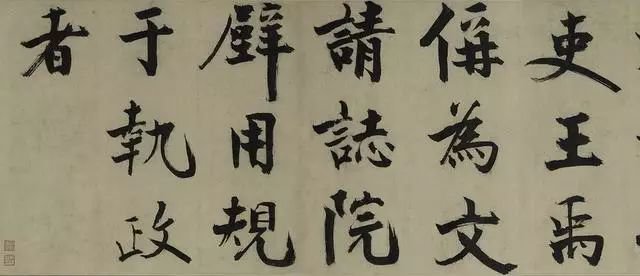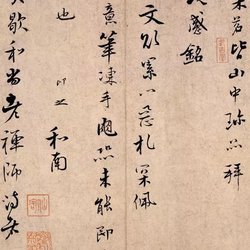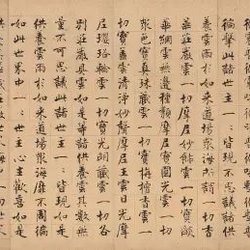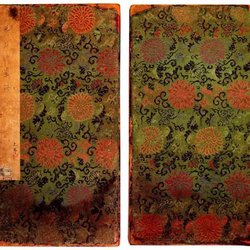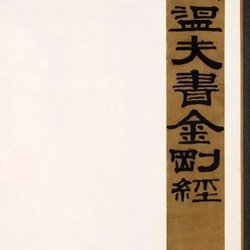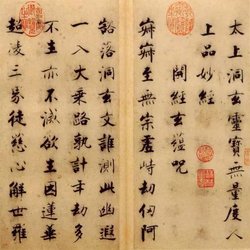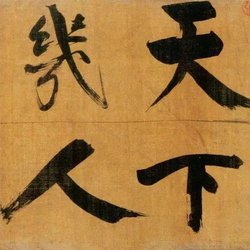Zhang Jizhi was one of the top regular script masters in the Song Dynasty, and he wrote the most regular scripts in his life. The evaluation of Zhang Jizhi's calligraphy is still mixed.
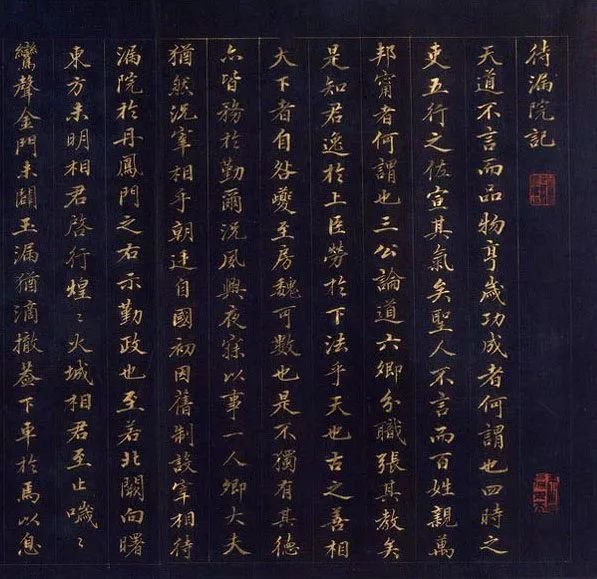
Zhang Jizhi is famous for being good at writing large-character scripts in regular script. Many of his works that have been handed down to this day are large volumes, such as "Two Poems of Du Fu's Seven Rhythms" and "Records of the Tailu Courtyard".
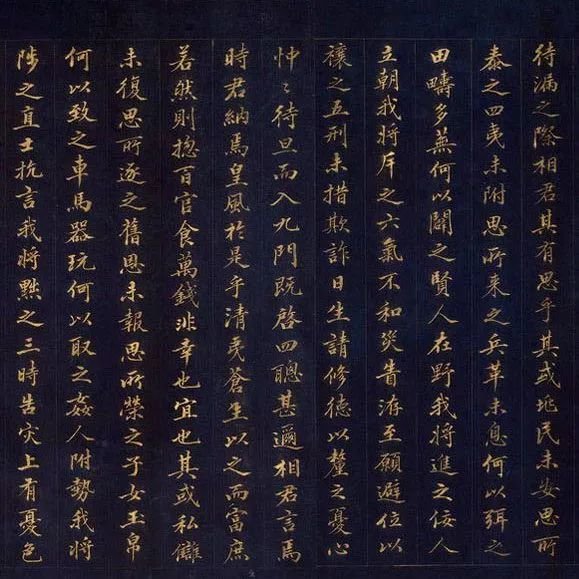
This type of works draws on the characteristics of Yan Zhenqing and Huang Tingjian's method. They are dignified and thick, steady and open, filled with vitality and majestic. He likes to write large characters with a bare pen, especially when dealing with some lines with strong contrast. He is used to sticking the edge of the sharp and hard pen on the paper, making the lines under the pen more exaggerated and impressive, with the front People say that "it is like a hard crossbow stepping on arrows, and the strong iron bending silver, which transcends ancient and modern times and cannot be described clearly" ("Records of Calligraphy and Painting Seen by Wu and Yue" written by Lu Shihua in the Qing Dynasty).
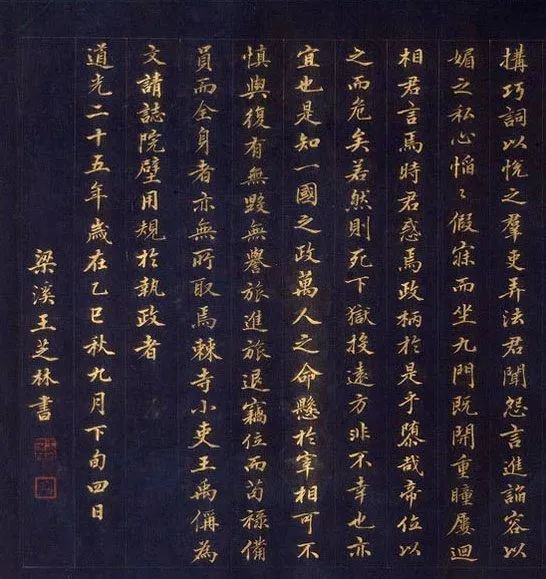
Zhang Jizhi used this dangerous brushwork to embody the power and beauty of calligraphy and highlight his personality. It is understandable that it is a creative move. However, because later generations lacked Zhang Jizhi's quality and skill, when imitating this kind of brushwork, they often showed off their muscles, became crazy and angry, and were vulgar, so that they were regarded as habits. However, having said that, the morbid and ugly behavior of subsequent generations of imitators cannot be compared with Zhang Jizhi's unique brushwork.
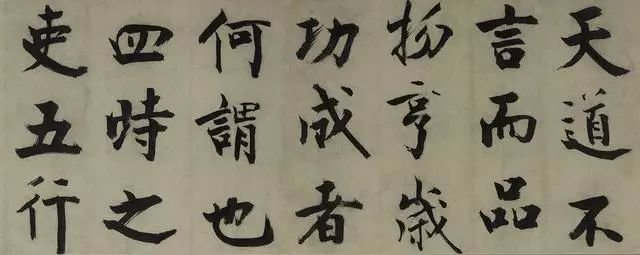
"Taileiyuan Ji" is the representative of his large-character calligraphy. There are three characters in each line of this scroll, and the characters are as big as the mouth of a bowl.
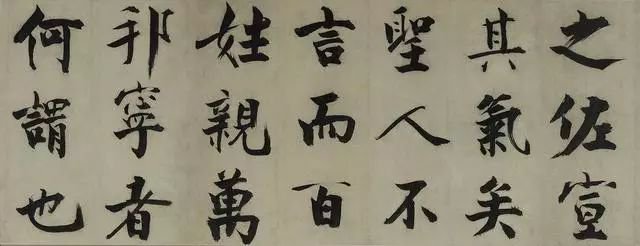
The font of "Tailu Courtyard Notes" is based on the wide and square characters of Yan, and the strokes are thick and vigorous. The strokes are sometimes thick and sometimes thin, sometimes twisty and smooth.
